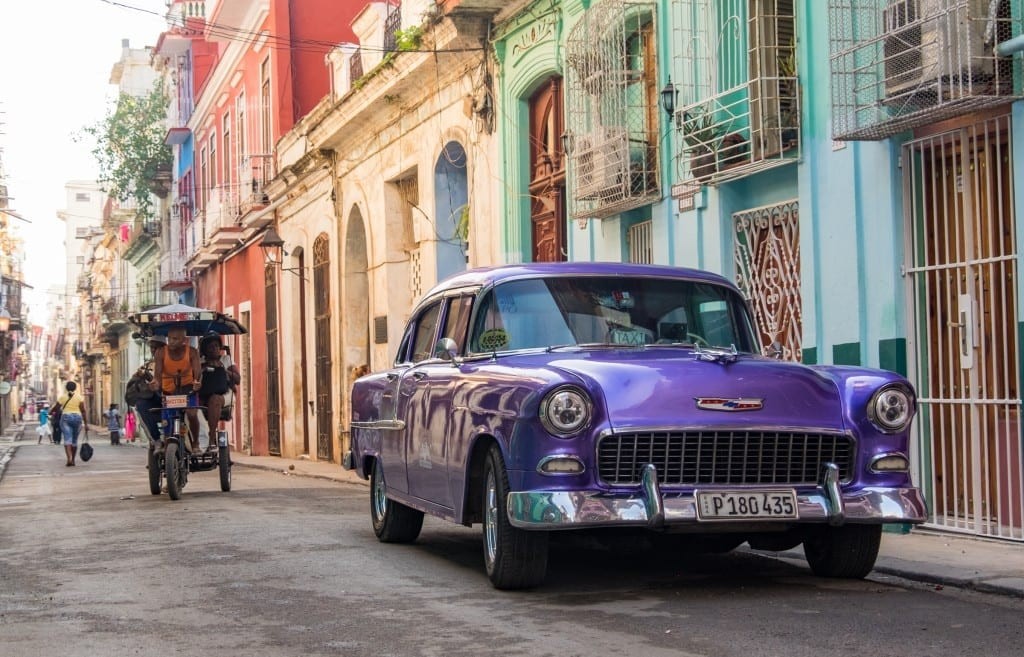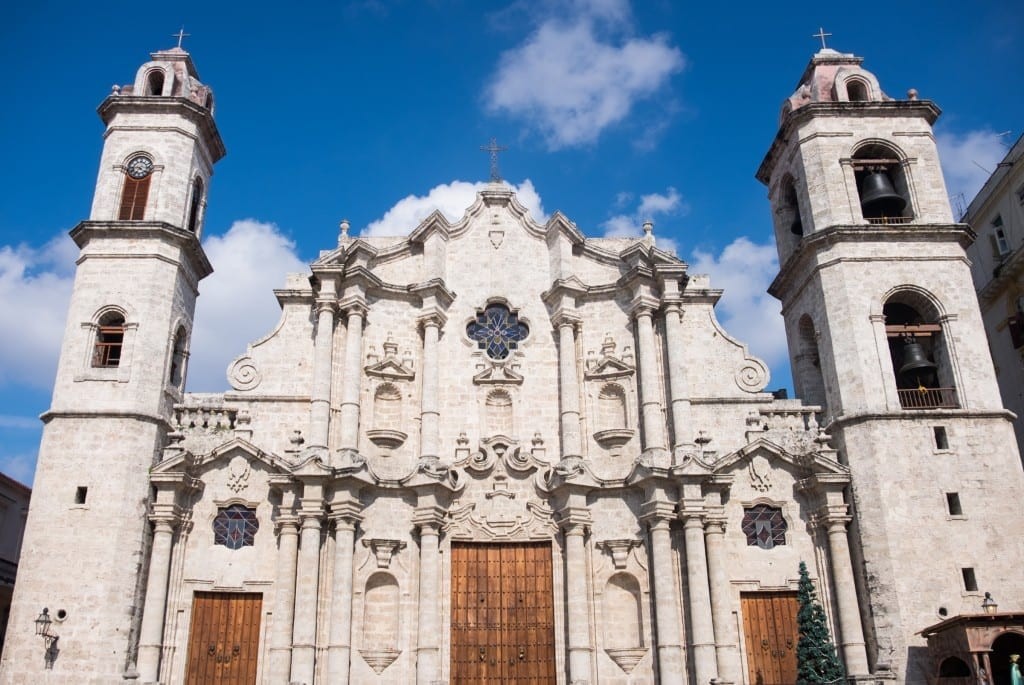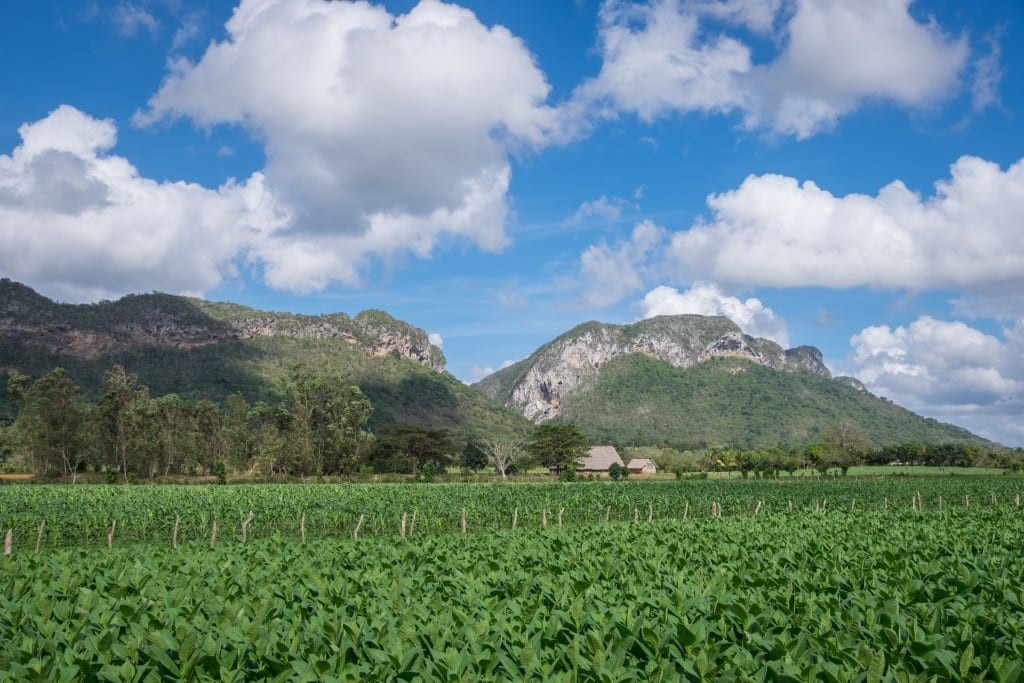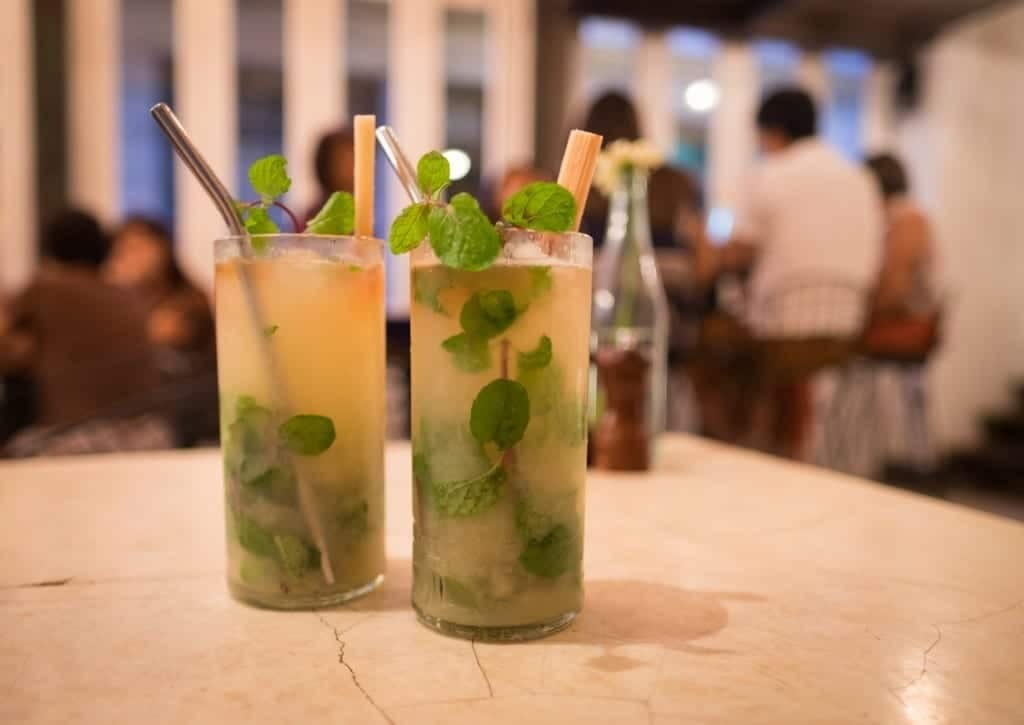Are you dreaming of vintage cars and vibrant culture? Can I Travel To Cuba From Nyc? Absolutely. This guide from SIXT.VN will provide everything you need to know about visiting Cuba as a US citizen, including visa information and travel tips for an unforgettable journey. Let’s explore this fascinating destination.
 Classic cars in Havana, Cuba, showcasing the vintage charm of the city
Classic cars in Havana, Cuba, showcasing the vintage charm of the city
1. Understanding the Basics: Can Americans Travel to Cuba?
Can Americans travel to Cuba? Yes, they can. Despite the historical complexities, travel to Cuba from the US is permitted under certain conditions. This section will break down the regulations, restrictions, and what you need to know before you go.
1.1 Legal Avenues for US Citizens to Visit Cuba
Navigating the legal landscape of traveling to Cuba as an American can seem daunting, but it’s more straightforward than many believe. According to the U.S. Department of the Treasury, travel to Cuba is allowed under specific general licenses, which don’t require applying for individual permission. These licenses cover activities that promote meaningful interaction with the Cuban people, supporting their independence from the Cuban government.
- Family Visits: If you have family in Cuba, this is a straightforward path.
- Official Government Business: If you’re traveling on behalf of the US government, a foreign government, or certain international organizations.
- Journalistic Activity: Covering news or producing media content.
- Professional Research and Meetings: Attending conferences or conducting research.
- Educational Activities: Participating in study abroad programs.
- Religious Activities: Engaging in religious events or missions.
- Public Performances, Workshops, and Competitions: Participating in or supporting cultural or athletic events.
- Support for the Cuban People: Engaging in activities that directly benefit the Cuban people.
- Humanitarian Projects: Working on humanitarian projects.
- Activities of Private Foundations or Research Institutes: Conducting research or educational activities.
- Exportation, Importation, or Transmission of Information: Sharing informational materials.
1.2 The “Support for the Cuban People” License
The most common and accessible option for tourists is the “Support for the Cuban People” license. This requires travelers to engage in activities that directly support the Cuban people, such as:
- Staying in private accommodations (casas particulares) instead of government-owned hotels.
- Eating at privately-owned restaurants (paladares).
- Shopping at local markets and businesses.
- Participating in tours and activities run by Cuban entrepreneurs.
1.3 What Does “Support for the Cuban People” Actually Mean?
To comply with the “Support for the Cuban People” license, your itinerary should primarily consist of activities that enhance contact with Cubans and contribute to their economic independence. This means avoiding activities that primarily benefit the Cuban government, such as staying at restricted hotels or dining at government-owned restaurants. Here’s a practical breakdown:
| Activity | How it Supports the Cuban People |
|---|---|
| Staying in Casas Particulares | Provides income directly to Cuban families, supporting their livelihoods. |
| Eating at Paladares | Supports private Cuban chefs and restaurant owners, fostering entrepreneurship. |
| Taking Private Tours | Hires local guides and drivers, providing them with valuable income and promoting cultural exchange. |
| Buying from Local Artisans and Markets | Sustains Cuban artists and small business owners, helping them thrive. |
1.4 Navigating the Gray Areas: Traveling Via a Third Country
Some Americans opt to travel to Cuba by flying through another country, such as Mexico or Canada. While this is a legal gray area, it’s important to understand the implications. Cuban authorities generally don’t require US citizens to present a Cuban visa upon entry if arriving from another country, but you’ll still need a tourist card. However, US regulations still apply, and you are technically required to adhere to one of the general license categories.
1.5 COVID-19 and Travel Requirements in 2024
As of April 2024, Cuba has lifted all COVID-related entry requirements. You no longer need to provide proof of vaccination or a negative COVID-19 test to enter the country.
- No testing required before departure.
- No proof of vaccination needed.
- No quarantine requirements upon arrival.
While these measures have been lifted, it’s always wise to stay updated on any potential changes by checking the US Embassy in Cuba’s website or the Cuban Ministry of Public Health.
2. Planning Your Trip from NYC: A Step-by-Step Guide
Planning your trip to Cuba from NYC involves several key steps, from securing the necessary documentation to arranging flights and accommodations. This section provides a detailed guide to help you navigate the process smoothly.
2.1 Securing Your Cuban Visa or Tourist Card
Whether you opt for a direct flight from the US or travel via another country, you’ll need either a Cuban visa (also known as a general license) or a tourist card.
- Direct Flights from the US: If flying directly from the US, you’ll need the “pink tourist card,” which can usually be obtained at the departure airport. Contact your airline for specific instructions.
- Flights Via Another Country: If flying through another country like Mexico or Canada, you’ll need the “green tourist card.” This can typically be purchased at the airline counter in the departure airport.
2.2 Booking Flights from NYC to Cuba
Several airlines offer flights from NYC to Cuba, either direct or with layovers.
- Direct Flights: While direct flights are available, they may be limited depending on the time of year and airline availability. Airlines like JetBlue and American Airlines sometimes offer direct routes to Havana.
- Flights with Layovers: Flights with layovers in cities like Miami, Cancun, or Toronto are more common. Use flight comparison websites like Skyscanner to find the best deals.
2.3 Choosing Accommodations: Casas Particulares vs. Hotels
To comply with the “Support for the Cuban People” license, it’s recommended to stay in casas particulares (private homestays) rather than government-owned hotels.
- Casas Particulares: These offer an authentic Cuban experience, allowing you to interact with local families and support their businesses directly. You can find casas particulares on Airbnb.
- Hotels: While you can stay in hotels, avoid those on the US State Department’s Cuba Restricted List to ensure you comply with travel regulations.
2.4 Crafting an Itinerary That Supports the Cuban People
Your itinerary should include activities that directly benefit the Cuban people.
- Private Tours: Hire local guides for walking tours of Havana, visits to tobacco farms in Viñales, or explorations of historic sites.
- Local Restaurants (Paladares): Dine at privately-owned restaurants that serve authentic Cuban cuisine.
- Cultural Activities: Attend local music performances, dance classes, or art workshops.
- Shopping: Purchase souvenirs and crafts from local artisans and markets.
 Colorful buildings in Havana, Cuba, showcasing the architectural beauty of the city
Colorful buildings in Havana, Cuba, showcasing the architectural beauty of the city
3. Essential Travel Tips for Cuba
Traveling to Cuba requires some preparation and awareness of local conditions. Here are essential tips to ensure a smooth and enjoyable trip.
3.1 Money Matters: Cash is King
Due to US sanctions, American credit and debit cards do not work in Cuba. You must bring enough cash to cover all your expenses.
- Currency: Cuba has two currencies: the Cuban Convertible Peso (CUC) and the Cuban National Peso (CUP). Tourists primarily use CUC.
- Exchanging Money: Exchange your USD or EUR for CUC at official exchange houses (CADECA) or banks. Avoid exchanging money on the street, as this is illegal and risky.
- Budgeting: Plan your budget carefully, accounting for accommodations, meals, transportation, activities, and souvenirs. It’s better to overestimate than run out of cash.
3.2 Internet Access: Limited Connectivity
Internet access in Cuba is limited and often requires purchasing Wi-Fi cards.
- Wi-Fi Cards: Purchase Wi-Fi cards from Etecsa stores (the Cuban telecommunications company) or hotels. These cards provide one hour of internet access.
- Hotspots: Look for Wi-Fi hotspots in parks, hotels, and public squares. These areas are usually crowded with people using their phones.
- Data Roaming: Check with your mobile carrier about international roaming charges. Data roaming can be expensive in Cuba.
3.3 Health and Safety: Travel Insurance is a Must
Travel insurance is required to visit Cuba. Ensure your policy covers medical expenses, emergency evacuation, and trip cancellation.
- Medical Facilities: Medical facilities in Cuba may not meet US standards. Travel insurance can help cover the costs of medical treatment and evacuation if necessary.
- Safety: Cuba is generally a safe country for tourists, but petty crime can occur. Take precautions to protect your belongings, especially in crowded areas.
- Health Precautions: Consult your doctor about recommended vaccinations and health precautions before traveling to Cuba.
3.4 Transportation: Navigating Cuba
Getting around Cuba can be an adventure in itself.
- Taxis: Taxis are a common mode of transportation, especially in cities. Negotiate the fare before getting in the taxi.
- Buses: Viazul buses are a reliable option for traveling between cities. Book your tickets in advance, as they can sell out quickly.
- Colectivos: Colectivos are shared taxis that operate on fixed routes. They are a more affordable option than private taxis.
- Classic Cars: Taking a ride in a classic car is a must-do in Cuba. Negotiate the price beforehand and enjoy the experience.
3.5 What to Pack: Essentials for Your Trip
Packing for Cuba requires some consideration of the local conditions.
- Cash: Bring enough cash to cover all your expenses.
- Comfortable Shoes: You’ll be doing a lot of walking, so pack comfortable shoes.
- Light Clothing: Cuba has a tropical climate, so pack light, breathable clothing.
- Sunscreen and Insect Repellent: Protect yourself from the sun and mosquitoes.
- Medications: Bring any necessary medications, as they may not be readily available in Cuba.
- Toiletries: Pack your own toiletries, as they can be expensive or difficult to find in Cuba.
4. Exploring Cuba: Must-See Destinations and Activities
Cuba offers a wealth of cultural, historical, and natural attractions. Here are some must-see destinations and activities to include in your itinerary.
4.1 Havana: A City of Timeless Charm
Havana, the capital of Cuba, is a city of timeless charm, with its colorful colonial buildings, vintage cars, and vibrant culture.
- Old Havana (Habana Vieja): Explore the UNESCO World Heritage Site, with its historic squares, churches, and fortresses.
- Malecón: Take a stroll along the iconic seawall, especially beautiful at sunset.
- Plaza de la Revolución: Visit the historic square, home to the José Martí Memorial and government buildings.
- Museo de la Revolución: Learn about the Cuban Revolution at this museum housed in the former Presidential Palace.
- Classic Car Tour: Take a tour of Havana in a vintage car, a quintessential Cuban experience.
4.2 Viñales: A Natural Paradise
Viñales, located in the Pinar del Río province, is a natural paradise known for its stunning landscapes, tobacco farms, and limestone hills (mogotes).
- Viñales Valley: Explore the UNESCO World Heritage Site, with its picturesque landscapes and traditional tobacco farms.
- Tobacco Farms: Visit a local tobacco farm and learn about the process of growing and curing tobacco.
- Cueva del Indio: Take a boat ride through this underground cave.
- Mural de la Prehistoria: Admire the giant mural painted on a cliff face, depicting the history of evolution.
- Horseback Riding: Explore the Viñales Valley on horseback, a popular activity for tourists.
4.3 Trinidad: A Colonial Gem
Trinidad, located in the Sancti Spíritus province, is a well-preserved colonial town with cobblestone streets, colorful buildings, and a rich history.
- Plaza Mayor: Visit the central square, surrounded by historic buildings and museums.
- Museo Histórico Municipal: Learn about the history of Trinidad at this museum housed in a colonial mansion.
- Iglesia Parroquial de la Santísima Trinidad: Visit the main church, known for its beautiful architecture and religious art.
- Valle de los Ingenios: Explore the nearby valley, a UNESCO World Heritage Site, with its historic sugar plantations.
- Ancón Beach: Relax on the white sands of Ancón Beach, located a short drive from Trinidad.
4.4 Other Destinations to Consider
- Cienfuegos: Known as the “Pearl of the South,” Cienfuegos is a charming city with French colonial architecture and a beautiful bay.
- Santiago de Cuba: The second-largest city in Cuba, Santiago de Cuba is known for its music, culture, and revolutionary history.
- Varadero: A popular beach resort town with white sands and turquoise waters.
 Tobacco fields in Vinales, Cuba, showcasing the natural beauty of the region
Tobacco fields in Vinales, Cuba, showcasing the natural beauty of the region
5. Ethical and Responsible Travel in Cuba
Traveling to Cuba comes with a responsibility to support the Cuban people and respect their culture. Here are some tips for ethical and responsible travel.
5.1 Support Local Businesses
- Stay in Casas Particulares: Choose private homestays over government-owned hotels.
- Eat at Paladares: Dine at privately-owned restaurants.
- Shop at Local Markets: Buy souvenirs and crafts from local artisans.
- Hire Local Guides: Take tours with local guides and drivers.
5.2 Respect Cuban Culture
- Learn Some Spanish: Even basic Spanish phrases can go a long way in showing respect for the local culture.
- Dress Appropriately: Dress modestly, especially when visiting religious sites.
- Be Mindful of Your Interactions: Engage with Cubans respectfully and avoid discussing sensitive political topics.
- Avoid Overt Displays of Wealth: Be mindful of the economic disparities and avoid flaunting your wealth.
5.3 Environmental Awareness
- Conserve Water and Energy: Be mindful of your water and energy consumption.
- Avoid Littering: Dispose of your trash properly.
- Respect Wildlife: Avoid disturbing wildlife and their habitats.
- Support Eco-Friendly Tours: Choose tours that promote environmental conservation.
5.4 Combating Sex Tourism
- Be Aware of the Issue: Sex tourism is a problem in Cuba, as it is in many tourist destinations.
- Avoid Engaging in Exploitative Activities: Do not engage in any activities that exploit or endanger children or vulnerable adults.
- Report Suspicious Activity: If you suspect someone is involved in sex tourism, report it to the authorities.
6. Staying Connected with SIXT.VN: Your Travel Partner
SIXT.VN is here to help you plan and book your dream trip to Cuba. We offer a range of services to make your travel experience seamless and enjoyable.
6.1 Personalized Itinerary Planning
Our travel experts can create a personalized itinerary tailored to your interests and preferences. Whether you want to explore the historic streets of Havana, relax on the beaches of Varadero, or immerse yourself in the natural beauty of Viñales, we can design the perfect trip for you.
6.2 Accommodation Booking
We can help you find the best casas particulares and hotels in Cuba, ensuring you comply with travel regulations and support the Cuban people.
6.3 Transportation Arrangements
We can arrange transportation within Cuba, including taxis, buses, and colectivos, making it easy for you to get around and explore the country.
6.4 Tour and Activity Booking
We can book tours and activities that align with the “Support for the Cuban People” license, ensuring you have meaningful interactions with locals and contribute to their economic independence.
6.5 Travel Insurance Assistance
We can help you find the right travel insurance policy for your trip to Cuba, ensuring you have coverage for medical expenses, emergency evacuation, and trip cancellation.
Contact SIXT.VN today to start planning your unforgettable journey to Cuba.
Address: 260 Cau Giay, Hanoi, Vietnam
Hotline/Whatsapp: +84 986 244 358
Website: SIXT.VN
7. Addressing Common Concerns and Misconceptions
Many travelers have questions and concerns about visiting Cuba. This section addresses common misconceptions and provides clarification.
7.1 Is it Safe for Americans to Travel to Cuba?
Yes, Cuba is generally a safe country for American tourists. However, it’s important to be aware of your surroundings and take precautions to protect your belongings. Petty crime can occur, especially in crowded areas.
7.2 Will I Get in Trouble with the US Government for Traveling to Cuba?
As long as you comply with the US travel regulations and adhere to one of the general license categories, you should not have any issues with the US government. Keep records of your activities and expenses to demonstrate that you supported the Cuban people.
7.3 Can I Use My Cell Phone in Cuba?
Check with your mobile carrier about international roaming charges. Data roaming can be expensive in Cuba. You can also purchase a local SIM card for your phone.
7.4 What Should I Do in Case of an Emergency?
In case of an emergency, contact the US Embassy in Havana or your travel insurance provider. Be prepared to pay for medical treatment upfront and seek reimbursement from your insurance company.
7.5 What if I Run Out of Money?
Since US credit and debit cards do not work in Cuba, it’s essential to bring enough cash to cover all your expenses. Have a backup plan in case of an emergency.
8. First-Hand Experiences: Stories from Travelers
Hearing from other travelers can provide valuable insights and inspiration. Here are stories from Americans who have visited Cuba.
8.1 The Solo Traveler
“I traveled to Cuba solo and stayed in casas particulares throughout the country. It was an incredible experience. I met so many wonderful people and learned so much about Cuban culture. I highly recommend it to anyone who wants an authentic travel experience.”
8.2 The Family Vacation
“We took our kids to Cuba and it was a trip of a lifetime. We explored Havana, relaxed on the beaches of Varadero, and visited a tobacco farm in Viñales. The kids loved riding in the classic cars and learning about Cuban history.”
8.3 The Cultural Enthusiast
“I’m a cultural enthusiast and Cuba was a dream destination for me. I attended music performances, dance classes, and art workshops. The Cuban people are so talented and passionate about their culture. I can’t wait to go back.”
9. Useful Resources for Planning Your Trip
Here are some useful resources to help you plan your trip to Cuba.
9.1 US Department of State
The US Department of State website provides information on travel regulations, safety and security, and health information.
9.2 US Embassy in Havana
The US Embassy in Havana website provides information on consular services and emergency assistance.
9.3 Airbnb
Airbnb is a great resource for finding casas particulares in Cuba.
9.4 Skyscanner
Skyscanner is a flight comparison website that can help you find cheap flights to Cuba.
9.5 TripAdvisor
TripAdvisor provides reviews and recommendations for hotels, restaurants, and attractions in Cuba.
 Mojitos in a bar, showcasing the vibrant nightlife in Cuba
Mojitos in a bar, showcasing the vibrant nightlife in Cuba
10. FAQs: Your Questions Answered
Here are some frequently asked questions about traveling to Cuba from NYC.
10.1 Do I Need a Visa to Travel to Cuba?
Yes, if flying directly from the US, you will need a “pink tourist card.” If flying through another country, you will need a “green tourist card.”
10.2 Can I Use My Credit Card in Cuba?
No, US credit and debit cards do not work in Cuba. You must bring enough cash to cover all your expenses.
10.3 Is There Internet Access in Cuba?
Internet access is limited and often requires purchasing Wi-Fi cards.
10.4 Is Travel Insurance Required?
Yes, travel insurance is required to visit Cuba.
10.5 Can I Travel to Cuba for Tourism?
Yes, you can travel to Cuba for tourism under the “Support for the Cuban People” license.
10.6 What Should I Pack?
Pack cash, comfortable shoes, light clothing, sunscreen, insect repellent, medications, and toiletries.
10.7 What Activities Can I Do to Support the Cuban People?
Stay in casas particulares, eat at paladares, shop at local markets, and hire local guides.
10.8 Is it Safe to Drink the Water?
No, it is not safe to drink tap water in Cuba. Drink bottled water or purified water.
10.9 What is the Best Time to Visit Cuba?
The best time to visit Cuba is during the dry season, from November to April.
10.10 How Can SIXT.VN Help Me Plan My Trip?
SIXT.VN can help you plan your itinerary, book accommodations and transportation, arrange tours and activities, and provide travel insurance assistance.
Conclusion: Your Cuban Adventure Awaits
Traveling to Cuba from NYC is possible and can be an incredibly rewarding experience. By understanding the travel regulations, planning your trip carefully, and engaging with the local culture responsibly, you can have an unforgettable adventure. Let SIXT.VN be your guide to exploring the vibrant and captivating island of Cuba.



